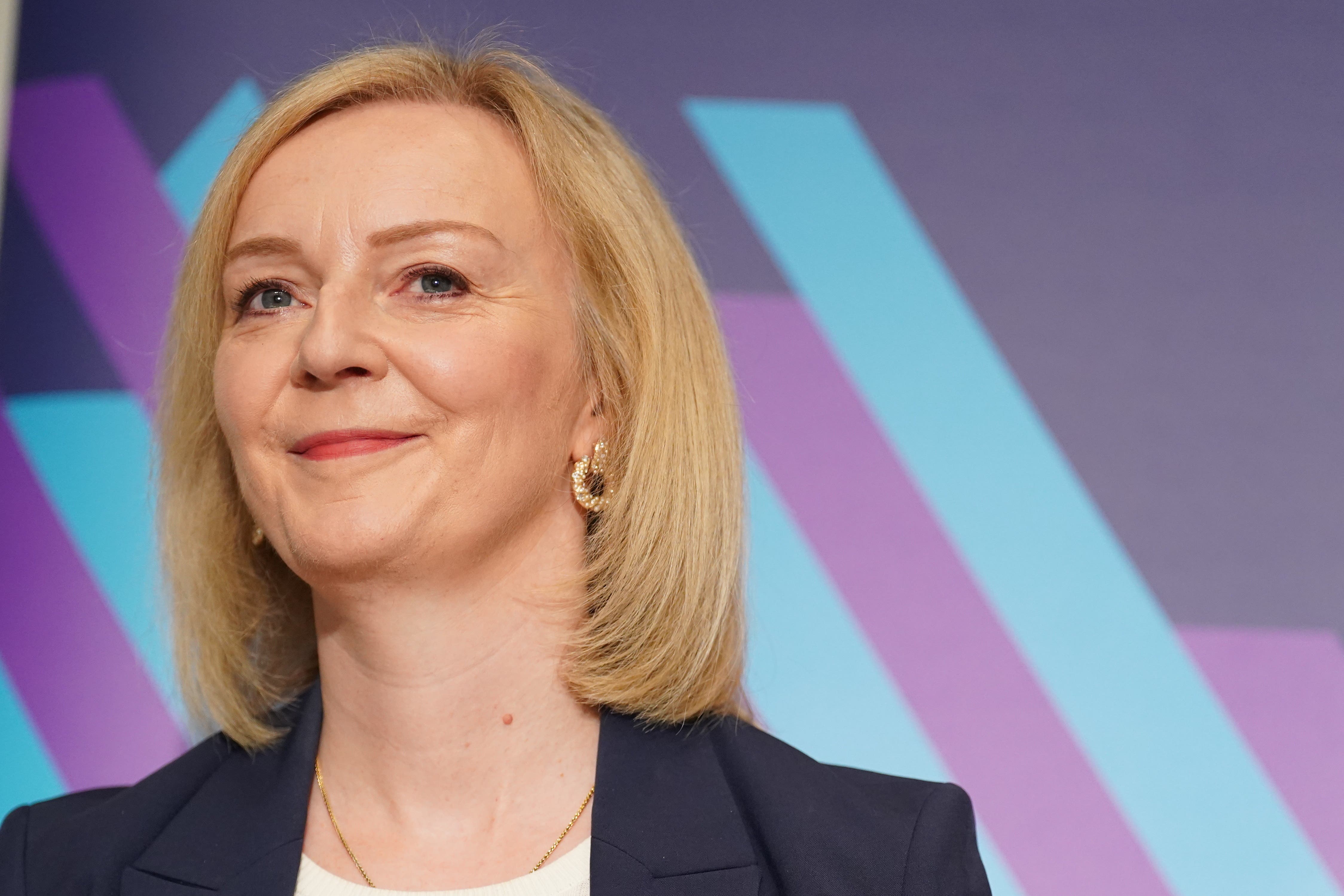Hunt tries to calm Tory rebels by pledging end to ‘vicious circle’ of tax rises
Liz Truss joins rebels in vowing to vote against any tax rise in Hunt’s mini-Budget
Chancellor Jeremy Hunt has claimed that welfare reforms and greater use of AI in the public sector could be the way to end the “vicious circle of ever-rising taxes”.
Mr Hunt is trying to placate a growing Tory rebellion – as Liz Truss joined dozens of backbenchers who have vowed not to vote for his autumn statement if it contains tax rises.
Some 33 Conservative MPs – including Jacob Rees-Mogg and Priti Patel – who are desperate for tax cuts have signed a pledge not to “vote for or support any new taxes that increase the overall tax burden”.
It comes as top economists at the Institute for Fiscal Studies (IFS) think tank said the Tories will have presided over the biggest set of tax rises since at least the Second World War.
Ahead of a major row at the Tory conference, Mr Hunt has again indicated he won’t offer tax cuts in November – but insisted he was keen to work on how to lower the tax burden “credibly” in future.
“We’re not in a position to talk about tax cuts at all,” he told The Times. “The question we have to answer for the British people is: what are you doing to get yourself in a position where you can credibly lower taxes?”
He said the path to tax cuts, which some economists and Conservatives argue helps to boost economic growth, would hinge on creating a “more productive state, not a bigger state”.
“We need a state that doesn’t just deliver the services it currently delivers, but actually improves the services it delivers and recognises that there’s going to be more calls on those services with an ageing population,” he said.

Mr Hunt added: “But we need to find a formula that doesn’t mean that we’re on a vicious circle of ever-rising taxes.”
He said AI could "transform" the public sector, helping teachers to mark papers, assist police in identifying crime hotspots and provide doctors and nurses with “more accurate diagnoses”.
On welfare reforms, he said that 100,000 people per year were “moving off work into benefits without any obligation to look for work” – a sign he said showed that the system is not working.
The chancellor told the newspaper the welfare system had to be a “mix of carrot and stick”, with more assistance required to help people find work given there is “no shortage of jobs”.

With a general election expected next year, the chancellor could use his spring Budget to unveil tax cuts ahead of the next Tory manifesto being published – with Mr Hunt and Rishi Sunak hoping to make cuts elsewhere.
Ms Truss, Rishi Sunak’s short-lived predecessor – who is expected to speak out in Manchester against the current taxation levels – said high taxes were the cause of the UK’s “stagnating” economy.
“We should always seek to reduce the tax burden, especially when there’s so much pressure on family budgets,” she tweeted.
Labour’s Jonathan Ashworth, the shadow paymaster general, mocked Ms Truss “and her gang of wreckers” for “plotting a comeback”, adding: “Rishi Sunak isn’t in charge of his party.”
The former PM’s mini-Budget last October sent the value of the pound tumbling and mortgage rates soaring due to the market panic over £45bn-worth of unfunded tax cuts.
Ms Truss and 32 other Tory MPs, including former party chairman Sir Jake Berry, Greg Smith, Danny Kruger and John Stevenson have vowed not to vote for the chancellor’s autumn statement if it contains tax rises.
The IFS said taxes will have risen to around 37 per cent of national income – equivalent to around £3,500 more per household – during the time between the 2019 election and the next general election.
It comes after it was revealed that the UK economy grew faster than had first been thought between January and March this year.
The Office for National Statistics said that it now thinks that gross domestic product (GDP) rose by 0.3 per cent in the first three months of the year, up from the 0.1 per cent previously estimated following the availability of revised official figures.
Join our commenting forum
Join thought-provoking conversations, follow other Independent readers and see their replies
Comments




Bookmark popover
Removed from bookmarks